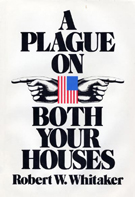Archive for May 23rd, 2006
Zhukov’s Coke
General Zhukov was a Soviet commander in World War II.
He tried Coca-Cola in some parties with Americans and he LOVED it.
But Coca-Cola was a symbol of capitalism and it was banned in Stalin’s USSR.
So the Coca Cola company made up special batches of Coke for General Zhukov. During World War II, fifty years before the clear cola came on the market, they left out the caramel coloring so it was a clear liquid and put it in cases marked Vodka.
This was especially funny to me because I had spent many years in my active alcoholic stage trying to make people think that my rum with coke ( actually it was more rum with a splash of coke) was just Coca-Cola.
But Zhukov’s life depended on people’s believing he was drinking straight vodka.
I am sure Stalin knew what was going on, but he couldn’t spare Zhukov. So Zhukov got away with it.
I didn’t.
The fact that I smelled like a distillery and was staggering drunk, so nobody was fooled into thinking I was just drinking Coca-Cola.
But in that condition, I never noticed.
Weird Stuff for a Bible Belter
I talk below about the rigid Bible Belt laws I was raised with.
When I was a teenager I crossed a European border on a train for the first time.
Everybody was getting their passports ready. It was formal moment.
Then several people took out bottles of wine and opened them up.
This was one of hte many moments in my life when things seemed absolutely unreal.
In the Bible Belt, when you are about to face a uniformed government official, the LAST thing you do is pull out your bottle and a corkscrew.
If Europeans didn’t understand the American concept of law versus enforcement, this American didn’t understand the European concept of alcoholic beverages.
Here is what was going on:
If you crossed a border with a bottle of wine, that bottle could be taxed. But you could be DRINKING an OPENED bottle of wine and it was not taxed. Some people had frogotten to open their wine bottle until they hit the border, so they were making it untaxed.
Later on I’ll tell you about the chickens on African planes.
American Enforcement
I was raised in the Bible Belt, where alcoholic beverages were strictly controlled, at least on the books.
When you were on the train, the club car where you could buy drinks opened and closed as you crossed state or even county lines.
This is because the 21st amendment, which repealed Prohibition, has a provision that the state has the right to restrict alcohol. Even interstate transportation was not exempted, so if you were on a train in a local option state where each county had its own liquor laws, the club car could only serve drinks as it passed through counties where liquor-by-the-drinks was legal.
I wonder about jet planes today. Legally the tray that serves drinks should be opened and closed by the minutes and seconds of the corners of counties you’re passing over.
Apparently there are limits to the silliness even of liquor laws.
But very few.
Until a couple of decades ago there were only two states left that had statewide prohibition, Oklahoma and Mississippi.
Oklahoma had a serious prohibition law. Mississippi’s was fascinatingly different.
It also satisfied all parties.
Mississippi had official statewide alcohol prohibition. This made the Baptists happy as a matter of principle.
But one aspect of American law that is so confusing to outsiders is the enforcement aspect. For example, the US Constitution requires that each state give full faith and credit to the laws of every other state, but they don’t. Many states have refused to extradite criminals to other states.
The problem is htat while “full faith and credit” is in the Constitution, Congress has never passed an enforcement provision. So while a state is supposed to recognize all the acts of antoher state, there is no penalty ifthey don’t.
So they don’t.
Many states don’t recognize the wasy Nevada divorce laws. So you can have two legal spouses. If you divorce in Nevada, North Carolina does not recognize the divorce. The Supreme Court in a landmark case recognized this peculiarity.
If you divorce in Nevada and remarry in Nevada and move to North Carolina you are still married to wife umber one, while in Nevada you are married to wife number two.
So Mississippi did hte same thing with its liquor law. There was statewide prohibition, but only the country sheriff could ENFORCE it.
In Biloxi a sheriff was regularly elected who enforced no liquor law at all. So the country was as wet as New Orleans in a dry state.
But the state needed to collect taxes on liquor. A state which was officially dry obviusly couldn’t have a liquor tax. So they had a Black Market Tax, which taxed illegal goods, ie, liquor, beer, wine, etc.
In other words, Mississippi was a dry state onthe books, which made Baptists happy as a matter of principle, and it was a local option state in practice.
I wish I had been on a train during that period in the the Magnolia State. I wonder how they hadnled it when they crossed country lines?




Recent Comments